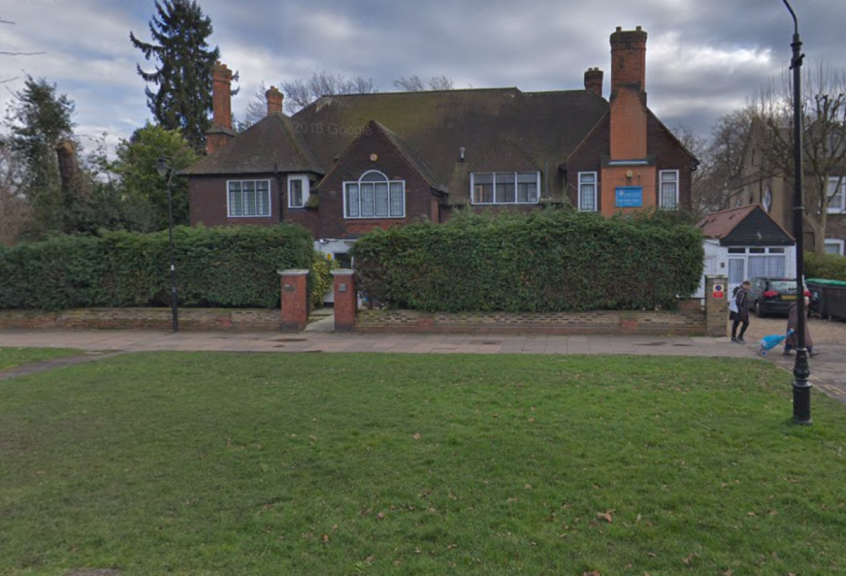
The Court of Appeal has upheld a censorship zone imposed around an abortion clinic in Ealing, London, that stops pro-lifers from being able to offer help to women within 100m of the building.
A legal challenge was brought against the zone by mother-of-one Alina Dulgheriu, who plans to challenge the appeal court's ruling.
The censorship zone criminalises assembling near the clinic as well as the offer of prayer, information or advice to women using it.
The Court of Appeal agreed that the Ealing Public Order restricts rights to assembly, religion, thought, expression and the reception of information but concluded that this was justified because of the right of visitors to the Marie Stopes clinic not to be seen in public.
Dulgheriu has been been at the forefront of efforts to overturn the public order as someone who changed her mind about an abortion after receiving help from a local pro-life vigil.
She had considered an abortion eight years ago after discovering she was pregnant during a difficult time in her life in which she had lost her job and been left by her boyfriend.
She said outside court on Wednesday: "My little girl is here today because of the real practical and emotional support that I was given by a group outside a Marie Stopes centre, and I am going to appeal this decision to ensure that women in Ealing and all across the country do not have this vital support option removed.
"I will continue to stand up for the women whose voices have been sidelined throughout this process and for women who need life-saving support today but cannot get it."
She continued: "Ealing Council could have taken action in a way that would have protected women and safeguarded the essential help offered at the gate. Instead, they criminalised charity and attempted to remove dedicated and caring individuals from public space without justification.
"It is very clear that many are opposed to Ealing's ban on peaceful and charitable activity, and like me, they want to see support available to vulnerable women where it is most needed.
"I cannot imagine a society where a simple offer of help to a woman who might want to keep her child is seen as a criminal offence. I refuse to accept that women should be denied the opportunity to receive help where they want to keep their child."
Elizabeth Howard, spokesperson for Be Here For Me, a campaign group formed of mothers who have been helped by pro-life vigils, fears that more women will be uninformed about their options.
"Ealing Council has banned pro-lifers from helping women like Alina. Alina has challenged their decision in court, but twice the court have ignored her story," she said.
"In five years of the pro-life vigil's work in Ealing, more than 500 women accepted an offer of help and chose to keep their baby rather than have an abortion. These women have tried again and again to have their voices heard, but they are ignored.
"In today's Appeal Court judgement, there is literally not a single sentence, not a single word, dedicated to the women who have been helped by the vigil, who are grateful for the vigil, and who have given the other side of the story."
Clare Mulvany, also of Be Here For Me, said: "We are horrified and shocked by this ruling which has set aside the 'right to choose' for those women who do not wish to have an abortion and for those who stand ready to help them."
She added: "No one can claim to uphold a right to choose whilst supporting the stripping away all but one choice. These women and their powerful stories must be made more visible."
Pro-life charity Society for the Protection of the Unborn Children said there was no evidence that women using abortion clinics were being harassed or intimidated by pro-life vigils.
"This is a tragic decision which dangerously infringes democracy and blocks women from receiving support from pro-life vigils" said John Deighan, SPUC's deputy chief executive officer.
"The verdict was imposed on the basis that a censorship zone was needed in order to protect Marie Stopes clinic users from 'harassment and intimidation.'
"Such false allegations are widely used in an attempt to vilify peaceful pro-life people, yet there have been no findings or prosecutions of intimidation and harassment concerning pro-life vigils in the United Kingdom."
Ealing is not the only council to have imposed restrictions on pro-life activities outside abortion clinics. Earlier this year, Richmond Council introduced a similar public order that is currently being challenged in the High Court.
Elsewhere in London, Lambeth and Southwark councils are considering introducing censorship zones, as are cities further afield like Birmingham, Manchester, Portsmouth, and Leeds.
Mr Deighan said Wednesday's ruling set a "troubling precedent" that could encourage a proliferation of censorship zones around abortion clinics across the country.
"This amounts to a growing attack on freedom of speech and freedom of assembly taking root in councils across the land," he said.













